Jim Kenyon: Defense attorney in Dartmouth trespassing case known for representing activists
| Published: 03-01-2024 9:31 PM |
Within hours of two Dartmouth student-activists being arrested on Oct. 28 for refusing to leave a camping tent they had pitched on the lawn outside President Sian Leah Beilock’s office, Minnesota attorney Kira Kelley started getting phone calls, text messages and emails from Upper Valley residents.
“For better or worse, I’ve built a reputation as a lawyer that people who get into trouble for their activism can go to,” Kelley told me.
People are also aware that Kelley, who grew up in Hartland and graduated from Hanover High School in 2011, has a hard time saying no to cases such as the one that started playing out Monday in Lebanon District Court. Dartmouth freshman Kevin Engel and junior Roan Wade have been charged with criminal trespass while peacefully protesting to bring awareness to the plight of Palestinians in the Hamas-Israel war.
Both have pleaded not guilty. Monday was the opening round in a trial that still has a long way to go on a court docket not yet announced.
The case is an example of how “anyone can get arrested for anything,” Kelley said in a phone interview. “There’s no distinction between people who get arrested and who causes harm.”
Criminal trespass is a misdemeanor that carries no potential jail time, which means Engel and Wade didn’t qualify for a public defender. After they were arrested by Hanover police, Kelley stepped in to represent them pro bono. (Court documents use Wade’s birth name, which she’s in the process of legally changing. On campus, she’s already known as Wade.)
“The system punishes people who don’t have the resources to protect themselves,” said Kelley, a staff attorney with the nonprofit Climate Defense Project in Minneapolis.
I suspect the college knew that Engel and Wade, who work part-time jobs to help cover their living expenses, didn’t have the financial resources to hire private attorneys. As a result, “nobody expected them to fight this,” Kelley said.
Article continues after...
Yesterday's Most Read Articles
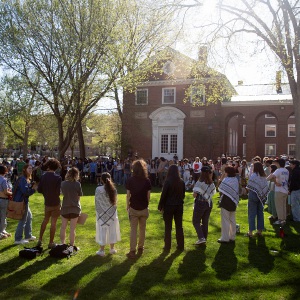 Dartmouth administration faces fierce criticism over protest arrests
Dartmouth administration faces fierce criticism over protest arrests
 Three vie for two Hanover Selectboard seats
Three vie for two Hanover Selectboard seats
 A Look Back: Upper Valley dining scene changes with the times
A Look Back: Upper Valley dining scene changes with the times
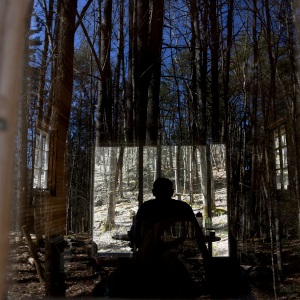 Norwich author and educator sees schools as a reflection of communities
Norwich author and educator sees schools as a reflection of communities
In the vast majority of misdemeanor cases, defendants plead guilty, pay a fine and try to get on with their lives after they’ve been saddled with criminal records.
But Kelley, 30, wasn’t about to let that happen. “She’s always had a passion for working on behalf of the underdog,” said her mother, Kim Aakre, a retired pediatrician.
Last April, Kelley was asked to speak to lawyers and activists at a roundtable hosted by the University of Michigan’s School for Environment and Sustainability. In the materials handed out before the panel discussion, Kelley was described as an attorney who works with “people across the country fighting coal plants, pipelines, injection wells, landlords, white supremacists, militarized borders, police brutality, and other forms of corporate/state repression.”
She can now add college students who get arrested for protesting outdoors on their own campus to the list.
After graduating from Vermont Law School in 2018, Kelley eventually landed in Minnesota.
“Kira is one of the most passionate lawyers that I have ever worked with,” said Claire Glenn, a staff attorney at the Climate Defense Project. “She recognizes the importance of building relationships with her clients.”
Kelley, who is licensed to practice in Minnesota and New Hampshire, said, “I learn so much from my clients. They’re people who are getting into trouble for trying to make the world a better place.”
At 5-feet, 4-inches tall, Kelley doesn’t have an imposing courtroom presence. But as Dartmouth and Hanover police prosecutor Mariana Pastore have learned, she’s not to be messed with. Her toughness might have something to do with her favorite sport. Kelley started playing rugby as a teenager, later joining the club team at the University of Vermont and continues to compete in Minnesota. Using a rugby analogy, her father, Andy Kelley, told me that “she’s always tackling the system, trying to correct what she sees as injustices.”
Kelley caught Dartmouth off guard in the days leading up to the start of the trial when she subpoenaed Beilock to testify.
The college brought in Michael Delaney, a former New Hampshire attorney general now in private practice, to represent Beilock. He filed a motion to quash the subpoena, claiming she has “no relevant testimony that she can offer in these cases.” Judge Michael C. Mace denied the motion.
On Thursday, Delaney filed another motion, asking Mace to reconsider. Delaney argued that allowing defendants to “hale into court a witness with no independent knowledge of the facts of the case solely because of her title smacks of harassment and bad faith.”
Considering Beilock isn’t on her trial herself, it’s puzzling why the college sees the need for Beilock to have her own attorney.
For whatever reason, Dartmouth is pulling out all the stops and sparing no expense to avoid Beilock taking the witness stand. Clearly, Kelley has the college rattled.
In his motion to reconsider, Delaney wrote that forcing Beilock to testify will have a “chilling effect on universities, causing hesitation to call the local police in the event of trespassers on campus — a harrowing prospect in a day where trespassers come armed on an increasingly regular basis.”
While Delaney was resorting to scare tactics, the college was acknowledging Beilock was off base when she told the Dartmouth community via email the morning after the arrests that Engel and Wade were part of a movement threatening to engage in “physical action.”
In an email to the “Dartmouth community” on Friday, Dean of the College Scott Brown wrote that “after discussions with these students, we now understand that they are consistently nonviolent activists.”
But recognizing that Engel and Wade didn’t pose a physical threat by sitting in a tent on the lawn outside the president’s office, doesn’t go far enough.
The college needs to let Pastore, the prosecutor, know that it wants the charges against Engels and Wade dropped.
And Kelley can return to Minnesota knowing her job here is done.
Jim Kenyon can be reached at jkenyon@vnews.com.

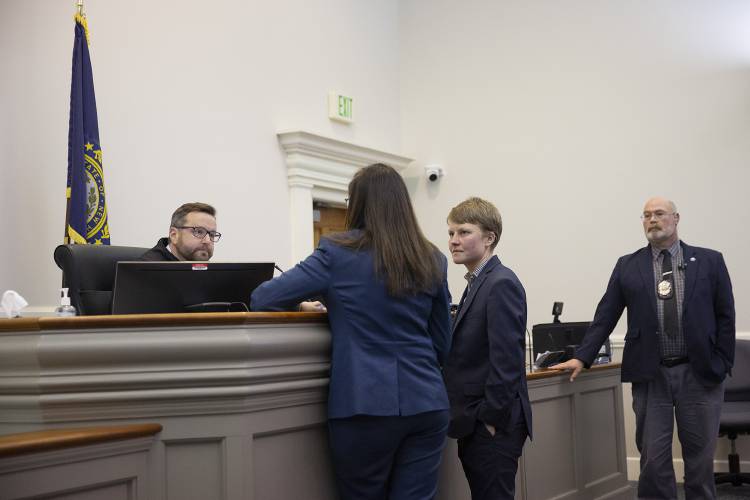
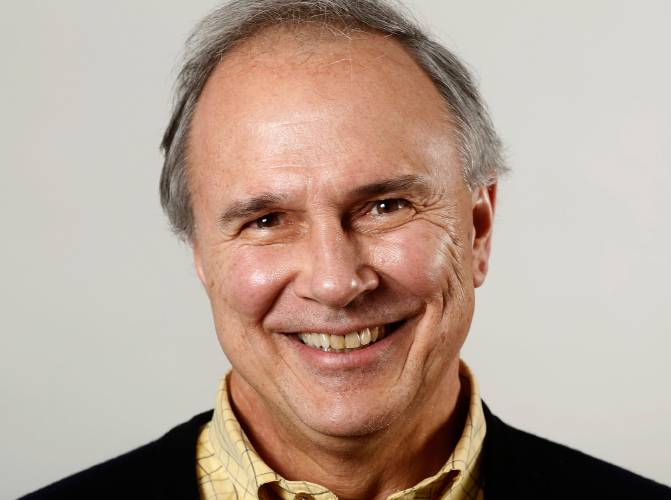
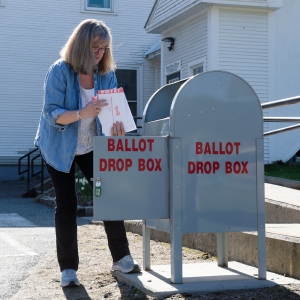 Sharon voters turn back proposal to renovate school
Sharon voters turn back proposal to renovate school
